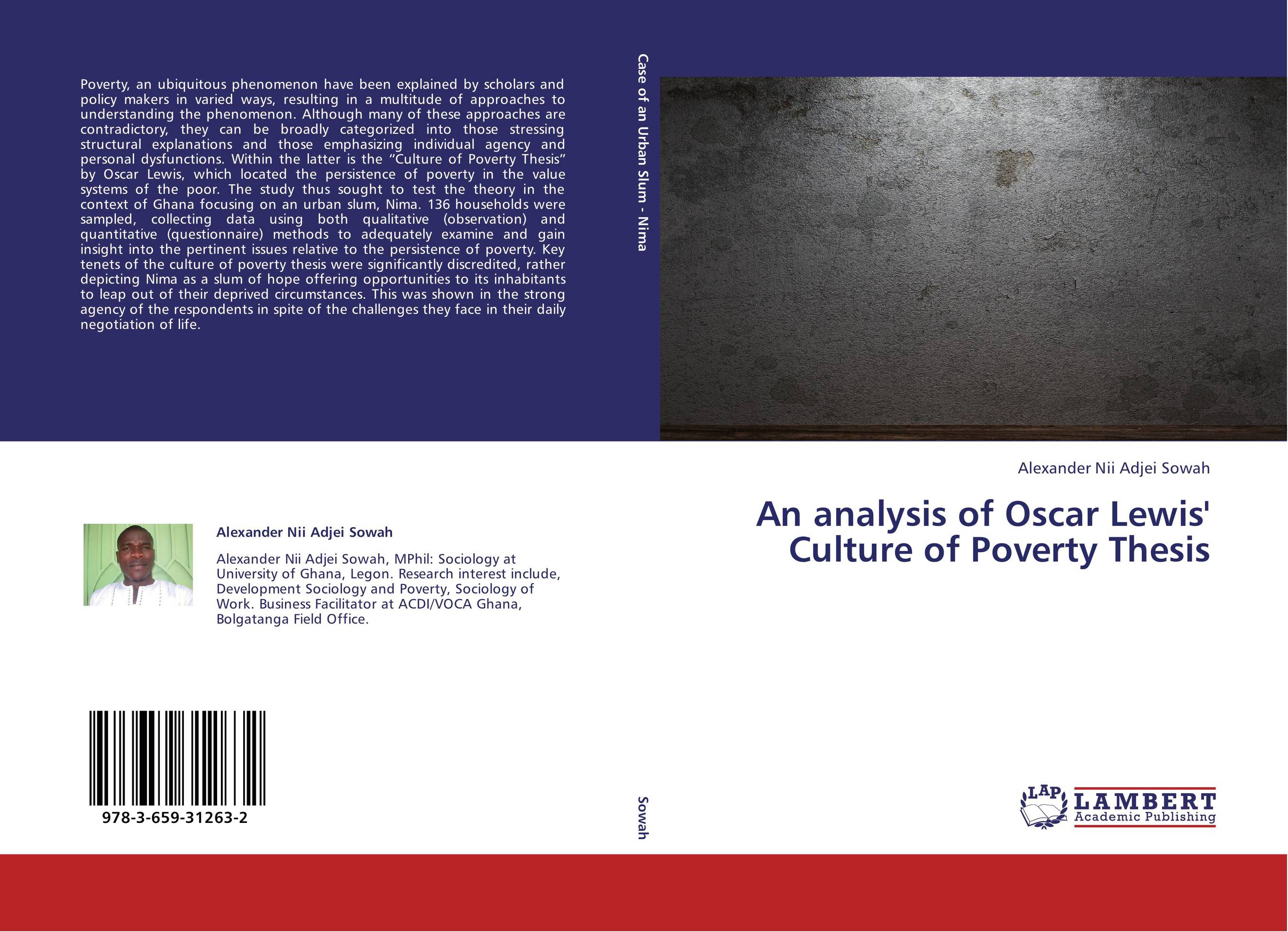| Поиск по каталогу |
|
(строгое соответствие)
|
- Профессиональная
- Научно-популярная
- Художественная
- Публицистика
- Детская
- Искусство
- Хобби, семья, дом
- Спорт
- Путеводители
- Блокноты, тетради, открытки
An analysis of Oscar Lewis' Culture of Poverty Thesis.

В наличии
| Местонахождение: Алматы | Состояние экземпляра: новый |

Бумажная
версия
версия
Автор: Alexander Nii Adjei Sowah
ISBN: 9783659312632
Год издания: 2013
Формат книги: 60×90/16 (145×215 мм)
Количество страниц: 132
Издательство: LAP LAMBERT Academic Publishing
Цена: 37632 тг
Положить в корзину
| Способы доставки в город Алматы * комплектация (срок до отгрузки) не более 2 рабочих дней |
| Самовывоз из города Алматы (пункты самовывоза партнёра CDEK) |
| Курьерская доставка CDEK из города Москва |
| Доставка Почтой России из города Москва |
Аннотация: Poverty, an ubiquitous phenomenon have been explained by scholars and policy makers in varied ways, resulting in a multitude of approaches to understanding the phenomenon. Although many of these approaches are contradictory, they can be broadly categorized into those stressing structural explanations and those emphasizing individual agency and personal dysfunctions. Within the latter is the “Culture of Poverty Thesis” by Oscar Lewis, which located the persistence of poverty in the value systems of the poor. The study thus sought to test the theory in the context of Ghana focusing on an urban slum, Nima. 136 households were sampled, collecting data using both qualitative (observation) and quantitative (questionnaire) methods to adequately examine and gain insight into the pertinent issues relative to the persistence of poverty. Key tenets of the culture of poverty thesis were significantly discredited, rather depicting Nima as a slum of hope offering opportunities to its inhabitants to leap out of their deprived circumstances. This was shown in the strong agency of the respondents in spite of the challenges they face in their daily negotiation of life.
Ключевые слова: poverty, Culture of Poverty, Urban Slum



